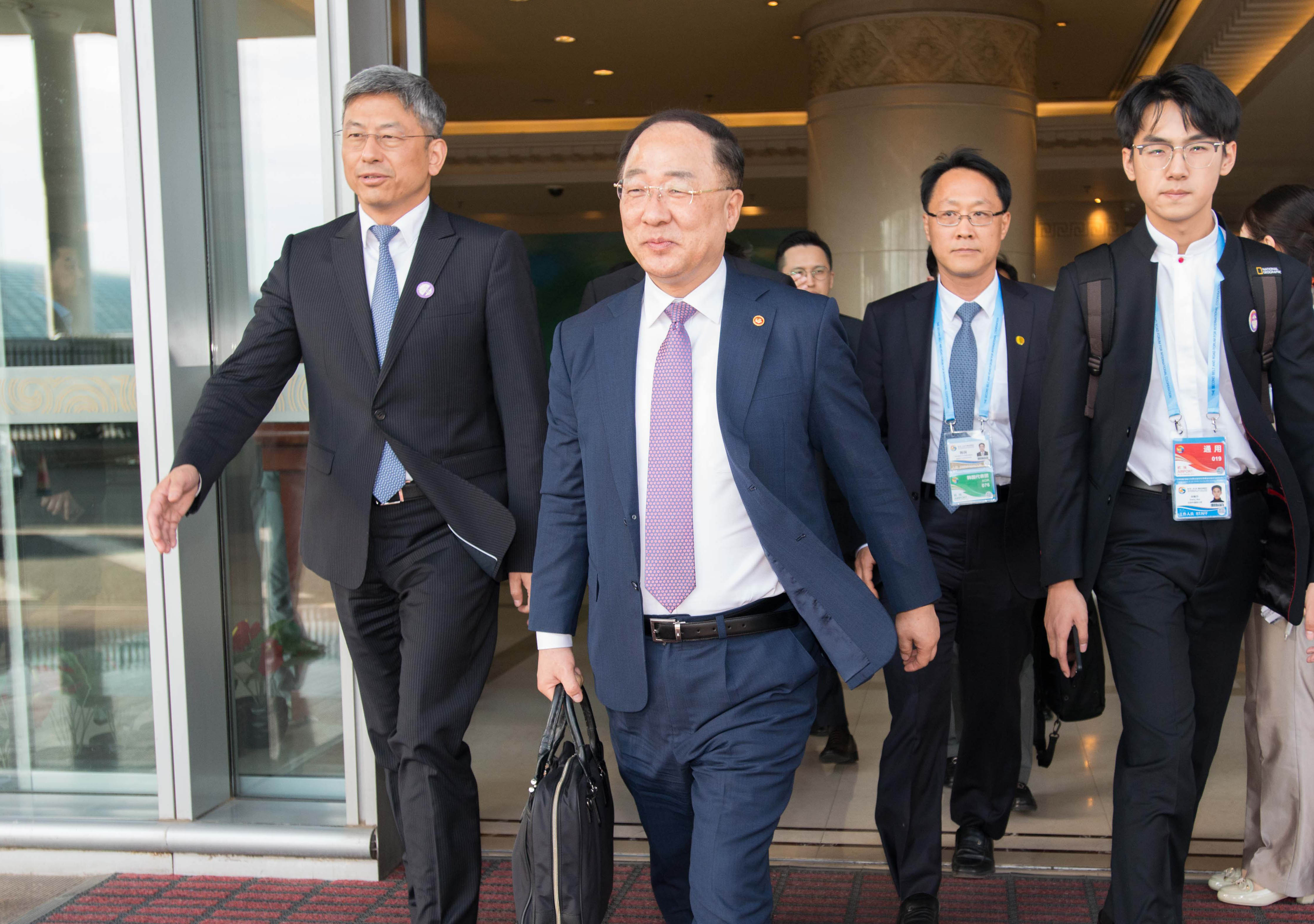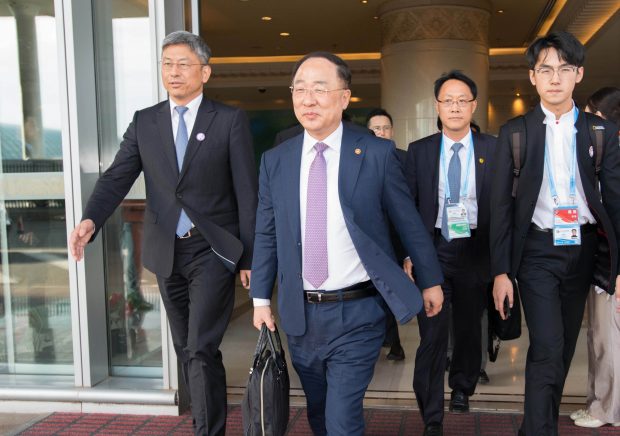
S. Korea calls Japan’s export restrictions economic retaliation

South Korea’s finance minister on Thursday pressed Japan to withdraw its export restrictions, denouncing them as an economic retaliation. Hong Nam-ki, the minister of economy and finance, said South Korea will decide when to file a complaint with the World Trade Organization over Japan’s decision as soon as an internal review is over. “We believe that the Japanese move is a clear act of economic retaliation,” Hong said in a radio interview. He said Japan’s export restrictions could hurt not only Seoul but Tokyo as well. Japan announced earlier this week that it will tighten regulations on exports to South Korea of high-tech materials, including fluorine polyimide, that are essential for the production of semiconductors and display panels.
Also Thursday, Hong said the Bank of Korea should make a reasonable decision on its key rate by taking into account changed economic situations, a thinly veiled call for a rate cut. In June, Bank of Korea Gov. Lee Ju-yeol hinted at a possible rate cut, citing what he called “further increased uncertainties” and low inflation that falls far short of the bank’s annual target. The central bank has kept the key rate frozen after raising it by a quarter percentage point to 1.75 percent in November.
(Yonhap)


